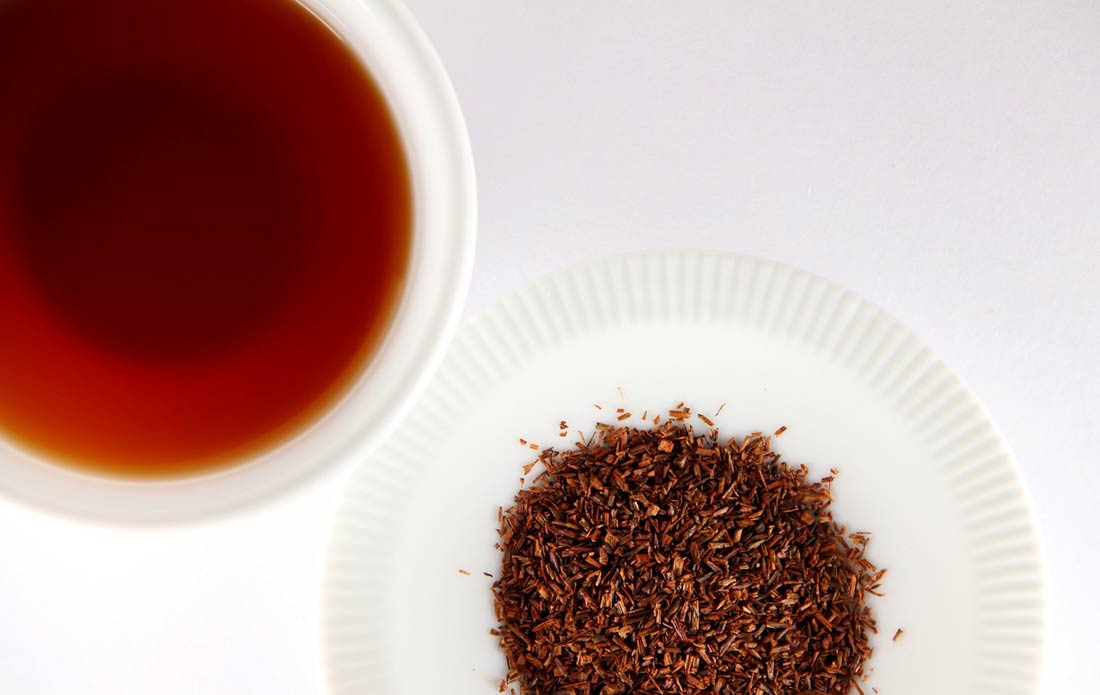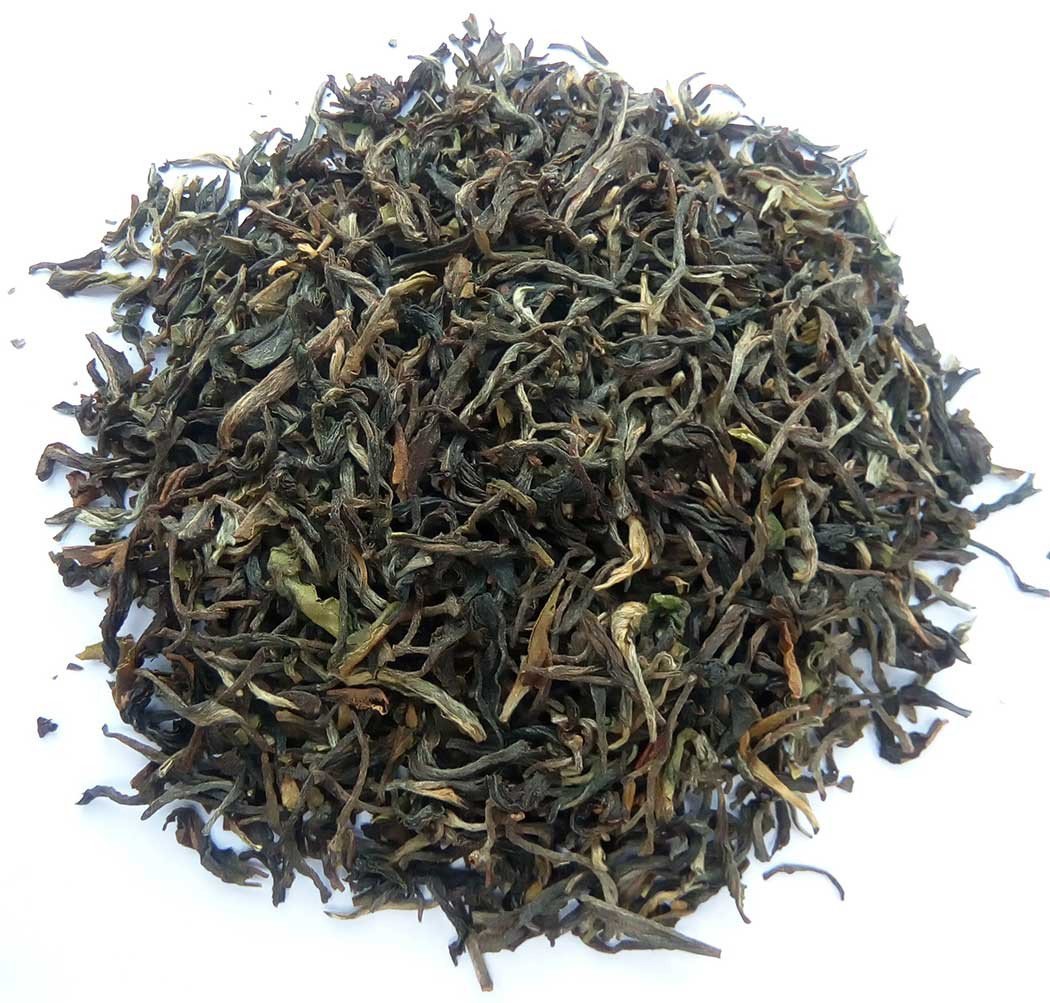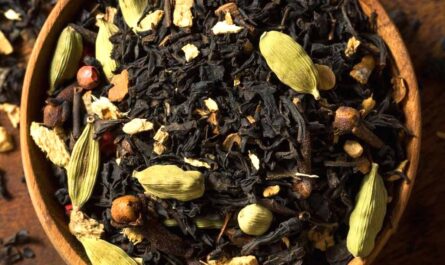What are some of Darjeeling black tea health benefits, nutrition, recipes, & side effects? Darjeeling black tea, renowned for its distinctive aroma and nuanced flavor, is a popular choice among tea enthusiasts. Determining the ideal daily intake requires consideration of various factors, including personal preferences, health conditions, and caffeine sensitivity. In this article, we will share some of Darjeeling black tea’s health benefits, nutrition, recipes, & side effects. Keep reading.
Crafting the perfect cup of Darjeeling black tea is a harmonious process that demands an appreciation for the nuances of the tea leaves and a meticulous approach to brewing. The result is a sensory journey through the misty slopes of Darjeeling, encapsulated in a single, aromatic cup. Experiment with the steps, adjust proportions and savor the delightful evolution of flavors that characterize this exceptional tea.
Nutritional Facts of Darjeeling black tea
How much Darjeeling black tea to drink every day?
Determining the ideal amount of Darjeeling black tea to drink daily is a subjective decision influenced by personal preferences, health considerations, caffeine sensitivity, and cultural factors. By approaching tea consumption with mindfulness and a willingness to experiment, individuals can tailor their tea-drinking experience to align with their unique tastes and lifestyles.
1. Personal Preferences and Taste Profile
The optimal amount of Darjeeling black tea to consume daily often hinges on individual taste preferences. Some may relish the robust and bold flavors, while others may prefer a more subtle and delicate taste. Exploring different brewing methods, such as steeping time and water temperature, allows tea connoisseurs to tailor their experience and find the perfect balance that aligns with their palate.
2. Health Considerations and Moderation
While Darjeeling black tea offers a myriad of health benefits, moderation is key. Consuming excessive amounts of tea may lead to an overconsumption of caffeine, potentially causing side effects such as insomnia, increased heart rate, or digestive issues. It is advisable to consult with a healthcare professional to determine an appropriate daily intake based on individual health conditions and overall well-being.
3. Caffeine Content and Sensitivity
Darjeeling black tea contains caffeine, albeit in lower amounts compared to some other black teas. Caffeine sensitivity varies among individuals, and factors such as age, weight, and tolerance levels play a role. It is essential to be mindful of one’s caffeine intake, especially for those sensitive to its effects. Adjusting the quantity of tea consumed or opting for decaffeinated varieties can help strike a balance between enjoying the beverage and managing caffeine intake.
4. Ritual and Enjoyment
Beyond the health considerations, the daily consumption of Darjeeling black tea can be influenced by the ritualistic and enjoyable aspects of tea drinking. For many, savoring a cup of tea is a moment of relaxation and mindfulness. Tailoring the quantity to suit one’s daily routine and the desired level of indulgence enhances the overall experience and transforms tea drinking into a pleasurable ritual.
5. Variability in Steeping Methods
The versatility of Darjeeling black tea allows for experimentation with various steeping methods. Adjusting the amount of tea leaves, water temperature, and steeping time can significantly impact the strength and flavor profile of the brew. Exploring these variables provides an opportunity to customize the tea-drinking experience, ensuring that each cup is a unique and satisfying indulgence.
6. Cultural Influences and Traditions
Consideration of cultural influences and traditions can also guide the optimal daily intake of Darjeeling black tea. In some cultures, tea is deeply embedded in daily rituals and social interactions. Adhering to cultural norms and customs may dictate the frequency and quantity of tea consumed, adding a layer of significance to the act of drinking Darjeeling black tea.
What is the best time to drink Darjeeling black tea?
Darjeeling black tea, a distinguished variety hailing from the picturesque hills of India unveils its nuanced flavors and aromatic symphony in a captivating dance with the hours of the day. Each moment appears as a canvas for this exquisite elixir, offering an ever-evolving sensory experience.
Dawn’s Embrace: Morning Rituals
At the break of dawn, when the world is still cloaked in the hush of awakening, Darjeeling black tea graces the senses with an invigorating embrace. The first light of day acts as a symphony conductor, enhancing the tea’s delicate musings. The briskness and floral notes, characteristic of Darjeeling, blend seamlessly with the crisp morning air, awakening the palate in a sublime choreography of nature and culture.
The Zenith of Noon: A Culinary Oasis
As the sun reaches its zenith, casting a golden glow upon the landscape, savoring Darjeeling black tea becomes a culinary oasis. The tea’s intricate layers unfold under the midday sun, offering a harmonious balance of briskness and muscatel notes. This moment becomes a refuge, where the tea enthusiast can immerse themselves in a sanctuary of flavors, complementing the warmth of the noonday sun.
The Afternoon Interlude: A Pause for Reflection
In the afternoon, when time appears to slow, Darjeeling black tea assumes the role of a companion for reflection. The amber liquor, infused with the essence of the hills, provides a gentle reminder of the passage of time. Its subtle astringency and floral undertones create a symphony of taste, offering a tranquil interlude amid the day’s hustle, encouraging a moment of pause and contemplation.
Dusk’s Delight: A Soothing Serenade
As dusk descends, Darjeeling black tea unveils a soothing serenade, offering a respite from the day’s endeavors. The tea, now adorned with mellower notes, provides a comforting companion during the twilight hours. The amber infusion mirrors the hues of the setting sun, and its gentle astringency harmonizes with the quieting world, creating a tranquil ritual that eases the transition from day to night.
Nighttime Reverie: A Sublime Nightcap
For those seeking a delightful nightcap, Darjeeling black tea, with its nuanced character, makes for a sublime choice. The subtle astringency and complex flavor profile provide a gentle caress for the senses, inviting a moment of relaxation before bedtime. Sipping this tea in the quietude of the night enhances its inherent tranquility, turning a simple act into a nocturnal reverie.
Culinary Prelude: Before or After a Meal?
Whether as a prelude or a coda to a culinary journey, Darjeeling black tea offers versatility. Before a meal, its briskness acts as a palate cleanser, preparing the taste buds for the symphony of flavors to come. After a meal, its subtle astringency aids digestion, leaving a lingering, satisfying note that completes the gastronomic experience. How AI, ChatGPT maximizes earnings of many people in minutes
The Evergreen Elixir: Timeless in Any Hour
In essence, Darjeeling black tea transcends the limitations of time, becoming a timeless elixir that can be savored at any hour. Its versatile nature allows it to weave seamlessly into the fabric of daily rituals, adapting its character to the nuances of each moment, ensuring that every sip is a celebration of the intricate dance between the tea and the tapestry of time.
Top Health Benefits of Darjeeling black tea
Darjeeling black tea stands as a testament to the artistry and craftsmanship embedded in the world of tea production. Its rich history, coupled with the geographical uniqueness of the Darjeeling region, results in a beverage that transcends mere refreshment. From the moment the tea leaves are plucked to the final infusion in your cup, every step in the journey of Darjeeling black tea is a celebration of flavor, tradition, and the natural beauty of the Himalayan foothills. Motivation – Mind – Success – Thinking – Productivity – Happiness
How to Make Darjeeling black tea
Darjeeling black tea, renowned for its distinctive aroma and complex flavor profile, is a connoisseur’s delight. Originating from the picturesque Darjeeling region in India, this tea is celebrated for its unique characteristics that reflect the terroir of the Himalayan foothills. Crafting the perfect cup of Darjeeling black tea requires a meticulous blend of high-quality tea leaves, precise proportions, and a thoughtful brewing process.
Description of Darjeeling Black Tea
The allure of Darjeeling black tea lies in its nuanced taste, marked by floral notes, a brisk astringency, and a hint of muscatel. The tea leaves carefully plucked from the Camellia sinensis plant, undergo an intricate oxidation process, contributing to the deep amber hue and complex flavor profile. This tea encapsulates the essence of the mist-covered Darjeeling plantations, making it a sought-after choice among tea aficionados worldwide. Business – Money Making – Marketing – E-commerce
Ingredients and Proportions
To embark on the journey of crafting a sublime cup of Darjeeling black tea, gather the essentials – high-quality Darjeeling tea leaves, freshly drawn cold water, and an optional sweetener or milk to taste. Opt for loose leaves, as they offer a more authentic and robust flavor. For every 8 ounces of water, use about 1 to 2 teaspoons of Darjeeling tea leaves, but feel free to adjust based on personal preferences. This careful balance ensures an optimal infusion of flavors without overpowering the delicate notes inherent in Darjeeling tea.
Steps to Make Darjeeling Black Tea
- Water Quality Matters: Begin with fresh, cold water to provide a clean canvas for the tea’s flavors to unfold. Ideally, use spring water or filtered water to avoid any impurities that might compromise the taste. Health books, guides, exercises, habits, Diets, and more
- Heating the Water: Heat the water just below boiling point, typically around 200 to 212°F (93 to 100°C). Maintaining the right temperature is crucial for extracting the full spectrum of flavors from the Darjeeling tea leaves.
- Measuring Tea Leaves: Accurately measure the Darjeeling tea leaves based on your preferred strength. Remember, the quality of the tea leaves and the proportion play pivotal roles in achieving the desired taste.
- Infusion Time: Allow the tea leaves to steep for 3 to 4 minutes. This duration strikes a harmonious balance, preventing bitterness while ensuring the infusion of the tea’s intricate flavors. Fitness – Meditation – Diet – Weight Loss – Healthy Living – Yoga
- Straining the Tea: Once steeped to perfection, strain the tea leaves to halt the brewing process. Use a fine-mesh strainer or a tea infuser to separate the infused liquid from the leaves, ensuring a smooth and refined cup.
- Optional Additions: Tailor the Darjeeling black tea to your taste by adding sweeteners like honey or sugar, or a splash of milk. Experiment with these additions cautiously, as they can alter the tea’s natural flavor profile.
Side effects of Darjeeling black tea
Darjeeling black tea, renowned for its distinctive flavor and unique terroir, has been a staple in the world of tea enthusiasts. Cultivated in the picturesque Darjeeling region of India, this tea is celebrated for its exquisite aroma, briskness, and muscatel notes. However, like any beverage, it’s essential to be aware of potential side effects that may arise from its consumption. Musical Instruments. Instrumental Software. Analog and Digital Synthesizers. Combo Organs
1. Interaction with Medications
Certain compounds in Darjeeling black tea may interact with medications, affecting their absorption or efficacy. Individuals taking medications regularly should seek guidance from healthcare providers to ensure that tea consumption does not compromise the intended therapeutic effects of their prescribed medications. Sports Apparel & Accessories·Sports, Exercise Equipment·Outdoors & Recreation·Accessories & Services
2. Caffeine Sensitivity and Insomnia
One of the primary concerns associated with Darjeeling’s black tea consumption is its caffeine content. While moderate caffeine intake can offer a stimulating effect, excessive consumption may lead to heightened sensitivity, causing individuals to experience insomnia or disrupted sleep patterns. Those susceptible to caffeine-related issues should exercise caution when indulging in this flavorful brew.
3. Gastrointestinal Distress
For some individuals, the tannins present in Darjeeling black tea can be a double-edged sword. While these compounds contribute to the tea’s astringency and mouthfeel, they can also trigger gastrointestinal distress in sensitive individuals. Issues such as stomach cramps, acid reflux, or nausea may arise, necessitating moderation in consumption. Gym. Body Fitness. Exercise. Weight Loss. Pickleball. Cardio. Balance Bike
4. Iron Absorption Interference
Darjeeling black tea contains compounds that may interfere with the absorption of non-heme iron from plant-based foods. This could pose a concern for individuals with iron-deficiency anemia or those relying on vegetarian diets. To mitigate this, it’s advisable to consume tea at least an hour before or after meals to minimize potential hindrances to iron absorption.
5. Dental Health Considerations
The natural presence of tannins and acidity in Darjeeling black tea may contribute to concerns regarding dental health. Excessive tea consumption can potentially lead to tooth discoloration and enamel erosion. Practicing good oral hygiene, such as regular brushing and dental check-ups, becomes crucial to counteract any adverse effects on dental health. First Aid & pharmacy·Diet & Nutrition·Spa & Personal Grooming·Hygiene·Birth Control
6. Anxiety and Nervousness
While the moderate amount of caffeine in Darjeeling black tea can provide a pleasant energy boost, it may have contrasting effects on individuals prone to anxiety or nervousness. Monitoring personal tolerance levels and opting for decaffeinated versions or alternative teas can be a prudent choice for those seeking to avoid such side effects.
7. Dehydration and Diuretic Effect
Caffeine’s diuretic properties can contribute to increased urine production, potentially leading to dehydration if fluid intake is not adequately balanced. Tea enthusiasts must counteract this effect by ensuring sufficient water consumption alongside enjoying their cup of Darjeeling black tea to maintain proper hydration levels. Fasting App suitable for everyone: Ready to see a better version of yourself?
8. Migraine Triggers
For individuals susceptible to migraines, Darjeeling black tea’s caffeine content may act as a trigger. Migraine-prone individuals should be cautious about their tea consumption, considering potential connections between caffeine intake and the onset of migraines. Exploring low-caffeine or caffeine-free alternatives may be a more suitable option.
9. Pregnancy and Lactation Concerns
Pregnant women and lactating mothers should exercise prudence in consuming Darjeeling black tea due to its caffeine content. High caffeine intake during pregnancy has been associated with adverse outcomes, including preterm birth and low birth weight. Consulting with healthcare professionals to establish safe consumption limits is paramount. RPM 3.0 – 60% CONVERSION & Money for Affiliate Marketing
Final thought
The health benefits of Darjeeling black tea are multifaceted, ranging from antioxidant-rich properties to potential contributions to heart health, weight management, and mental well-being. Incorporating this exquisite tea into one’s routine can be a flavorful and health-conscious choice, providing a holistic approach to overall wellness.
While Darjeeling black tea offers a sensorial journey with each sip, it is crucial to navigate its consumption mindfully. Awareness of potential side effects allows tea enthusiasts to savor this exquisite brew responsibly, ensuring a harmonious balance between enjoyment and well-being.
Other Interesting Articles
- 22 Pouchong Tea Health Benefits, Recipe, Time, Side Effects
- 18 Daily Things You Can Do to Improve Your Mental Health
- 22 Disadvantages of Drinking Tea with Milk: Advantages
- 22 Benefits of Drinking Tea in the Evening with Turmeric
- 19 Benefits of Drinking Black Tea in the Morning: Side Effects
- 21 Benefits of Drinking Hibiscus Tea Before Bed: Side Effects
- 21 Health Benefits of Drinking Tea after Lunch: Side Effects
- 20 Benefits of Drinking Moringa Tea Before Bed: Side Effects
- 22 Ruan Zhi Tea Health Benefits, Nutrition, Recipe, Side Effects
- 22 Jin Xuan Tea Health Benefits, Nutrition, Recipe, Side Effects
- 22 Li Shan Tea Health Benefits, Nutrition, Recipe, Side Effects
- 18 Avocado Leaf Tea Health Benefits, Recipe, Side Effects
- 20 Bamboo Tea Health Benefits, Nutrition, Recipe, Side Effects
- 21 Chaga Mushroom Tea Health Benefits, Recipe, Side Effects
- 19 Benefits of Drinking Tea in the Afternoon with Hot Water
- 22 Lavender Tea Health Benefits, Nutrition, Recipe, Side Effects
- 19 Health Benefits of Drinking Tea after a Workout, Side Effects
- 20 Liquorice Tea Health Benefits, Nutrition, Recipe, Side Effects
- 22 Health Benefits of Drinking Tea after Dinner, Side Effects
- 19 Guayusa Tea Health Benefits, Nutrition, Recipe, Side Effects




